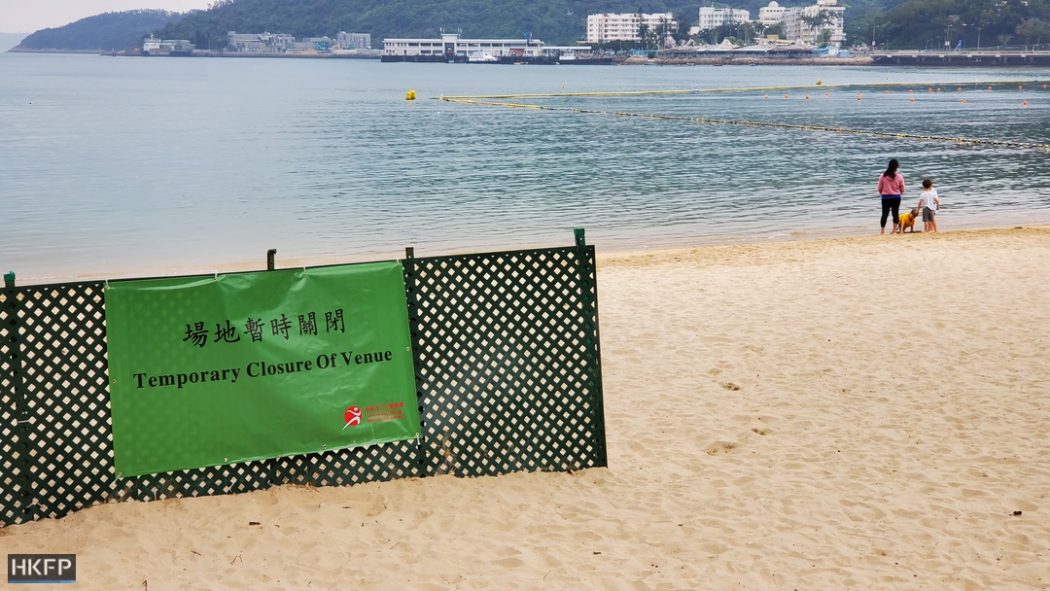Arrangements for on-the-spot fines are a questionable resort for governments in a hurry. Strictly speaking, the version unveiled a few weeks ago to discourage meetings is not actually an on-the-spot fine. People who participate in gatherings of more than four can be given a ticket which requires them to cough up HK$2,000 within two weeks.
Readers will note a surprising disparity between the instant fine for an imprudent meeting and the instant fine for illegal parking, which has been frozen at HK$400 for a long time. But this is not the government’s fault. The legislature routinely rejects efforts to raise the parking fine. There are a lot of drivers in that chamber.

There are some problems with this “on-the-spot” business. One is that it is distressingly reminiscent of places where the routine way of dealing with an operational police officer involves some variation on the phrase “can I pay the fine now?”
Another is that this sort of scheme is open to abuse. One old friend of mine who was out of favour with the Force had to give up driving altogether because he got so many tickets.
The record, set many years ago by a minibus driver, was 50 tickets in one week … all issued by the same police sergeant. That sort of thing does not happen these days, or so one hopes.
Another possible pitfall is the use of instant fines where tricky legal issues may arise.

Consider the only case we have been treated to in the media so far. This concerned six elderly men in a park. Two of them were playing Chinese chess and the other four were watching.
According to the official version of this event some police persons happened by, and warned the players and spectators that they should disperse. They refused to do so, and they were then all issued with a ticket each.
Clearly this bloodless description leaves a good deal out. We may suspect that the police people were a bit brusque, as young police people tend to be, and the old gentlemen were a bit grumpy, as old gentlemen tend to be.
There would then ensue an exchange of increasingly charged rhetoric, culminating in comments on motherhood and sex. So it goes. And then we get a broadcast distribution of tickets. But wait. The purpose of the law is not to penalise rudeness to police people, reprehensible though such rudeness is. It is to discourage gatherings of more than four people.

That does not mean it is like the official interpretation of the rioting law, which is that anyone present, whether a protester, a journalist, a first aider, a human rights observer or a passer-by with an unfortunate home address, is a rioter and subject to arrest and prosecution.
The offence of participating in a gathering of more than four people surely demands more subtlety. The two chess players, I suppose, had a good defence. Their meeting was only with each other. They had no control over who might wish to watch.
With all due respect to Chinese chess, I don’t think it is so exciting as a spectator sport that anyone playing in public must be held responsible for any crowd which may gather. They were not busking.
The first two spectators could also say they were doing nothing wrong. Their presence merely brought the gathering up to the legal maximum of four. Numbers five and six were the only people who broke the rules.
No doubt, faced with a group of irate old chess fans, it is not very practical to expect the forces of order to sort out who arrived last. But this is a hint that perhaps the legislation was not expected to operate in quite this way. Gatherings which are only just over the limit in open-air spaces might usefully be treated to advice rather than fines, even if the seed sometimes falls on stony ground.
It is interesting also to note that this provision has now made public protests almost impossible. This discovery had some entertaining ironies. The offending gathering was organised by a group of the People’s Poodles called Chinese Hearts. They proposed marching from the High Court to the Bar Association’s office to hand in a suggestion that Tanya Chan should be “disqualified” (I presume from the Bar, not the next election) because she had attended a meeting at which more than four people were present.
But as more than four people attended the protest, the police “warned the group to break up”, as the Standard put it, so a selected four marched alone.

This story also offered a priceless quote from one of the protesters, Alex Yeung Kwan-wah, whose claim to 15 minutes of fame is that he was the founder of Wah Kee Restaurant, apparently a household name to Standard readers.
Ms Chan’s offence, which hardly seems worthy of so much fuss, was to attend a meeting of bar owners disgruntled by proposals that they should be forced to close. This was, rather unsurprisingly in the circumstances, held in a bar.
Mr Yeung found this incredible. “I have never heard of anyone holding meetings in a bar,” he said, “I am a businessman and you may be able to lie to the public but the people will not be fooled by you.”
I think Mr Yeung needs to calm down. I am not a businessman but I have attended plenty of meetings in bars. Indeed in normal times I attend one every month. If you were going to meet a group of bar owners, where would you expect to meet? Does he really think that Ms Chan, eager to visit a bar for merriment and diversion, scared up a bogus group of bar owners to gather in a Sham Shui Po boozer with her?
No doubt the hunt for some legal implement with which to beat up Ms Chan will continue. Participants could usefully read the Community Legal Information Centre’s page on fixed penalty tickets, which says this:
“Except for the purposes of recovery of the fixed penalty and any additional penalty due for late payment, no evidence is admissible in any proceedings which tends to show that that individual has paid, or been ordered to pay, a fixed-penalty notice. Payment of, or an order to pay, a fixed penalty notice, or any failure to disclose a fixed penalty notice, is not a lawful or proper ground for dismissing or excluding a person from any office, occupation or employment, or for treating them less favourably than other employees…”
In other words even if Ms Chan was issued with the ticket for an excessively crowded meeting, the Bar Association is specifically forbidden by the Criminal Records and Rehabilitation of Offenders Ordinance from taking any further action against her because of it.
